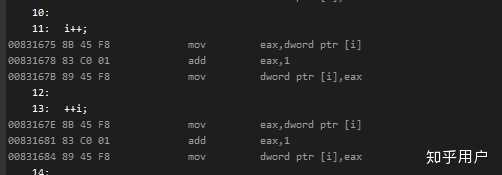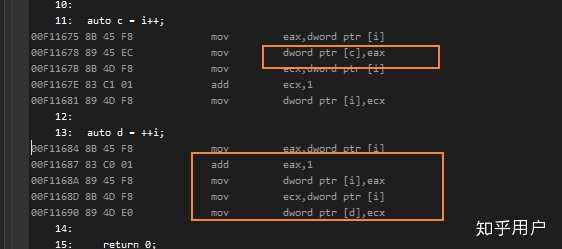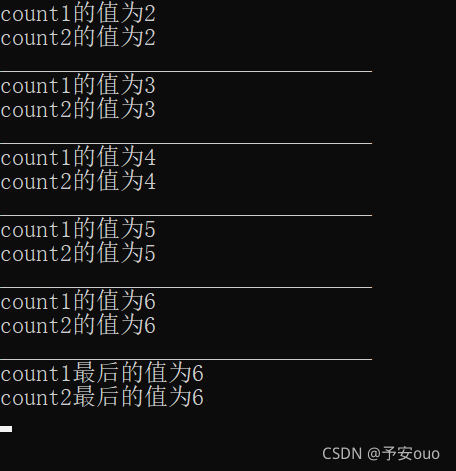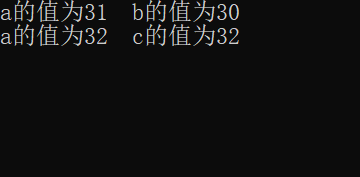用汇编指令查看两者不同
参考知乎链接
https://www.zhihu.com/question/19811087/answer/52676262
使用返回值之后有区别 如果不使用 没区别 不使用返回值
不使用返回值 使用返回值
使用返回值
(以上为汇编指令)
c++举例
使用返回值
#include<iostream>
using namespace std;
int main() {
int count1 = 1;
int count2 = 1;
int result1, result2;
for (int i = 0; i < 5; i++)
{
result1 = count1++;//使用返回值
result2 = ++count2;
cout << "count1++的值为" << result1 << endl
<< "++count2的值为" << result2 << endl;
cout << "_________________________________" << endl;
}
cout << "count1最后的值为" << count1 << endl
<< "count2最后的值为" << count2 << endl;
return 0;
}
运行结果
 在循环中将count1++和++count2赋值给result1和result2(使用返回值),可以看出count1++返回原来的值,而++count2返回原来+1的值。
在循环中将count1++和++count2赋值给result1和result2(使用返回值),可以看出count1++返回原来的值,而++count2返回原来+1的值。
而不使用返回值,在循环结束时输出count1,和count2的值,发现其均为6。说明i++和++i的形式,只在带返回值时体现区别。
不使用返回值
#include<iostream>
using namespace std;
int main() {
int count1 = 1;
int count2 = 1;
int result1, result2;
for (int i = 0; i < 5; i++)
{
result1 = count1++;
result2 = ++count2;
/*cout << "count1++的值为" << result1 << endl
<< "++count2的值为" << result2 << endl;
cout << "_________________________________" << endl;*/
//不使用返回值,直接输出值
cout << "count1的值为" << count1 << endl
<< "count2的值为" << count2 << endl
<< "_______________________________" << endl;
}
cout << "count1最后的值为" << count1 << endl
<< "count2最后的值为" << count2 << endl;
return 0;
}
运行结果

总结:若不使用返回值,则在运行结果方面没有区别。
若使用返回值,起点不一样:i++赋的是最开始的值,++i赋的是初始值+1.
测试
#include<iostream>
using namespace std;
int main() {
int a = 30;
int b = a++;
cout << "a的值为" << a<<" b的值为" << b << endl;
int c = ++a;
cout << "a的值为" << a<<" c的值为" << c<< endl;
return 0;
}
